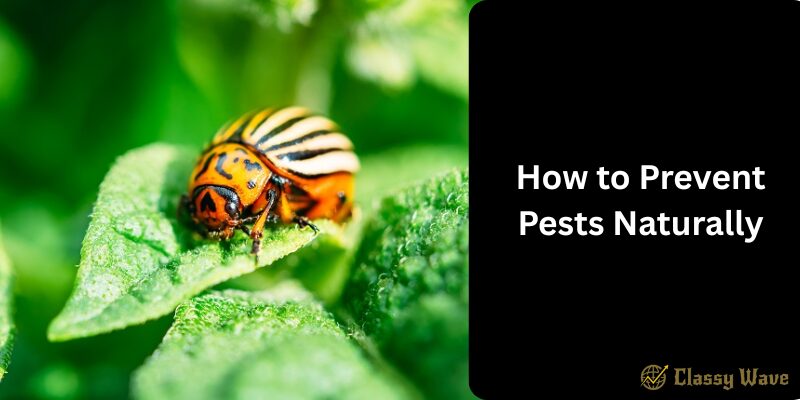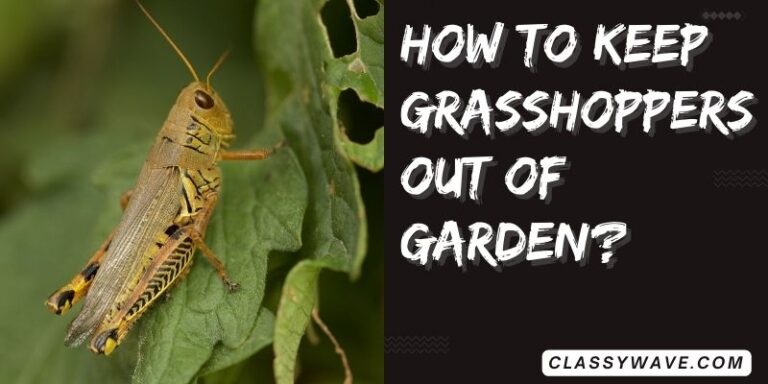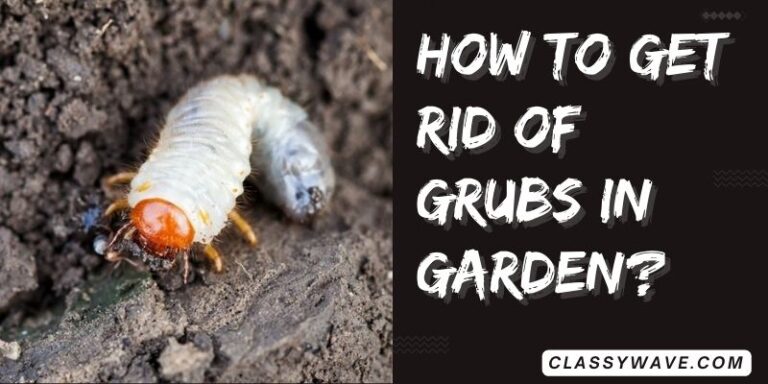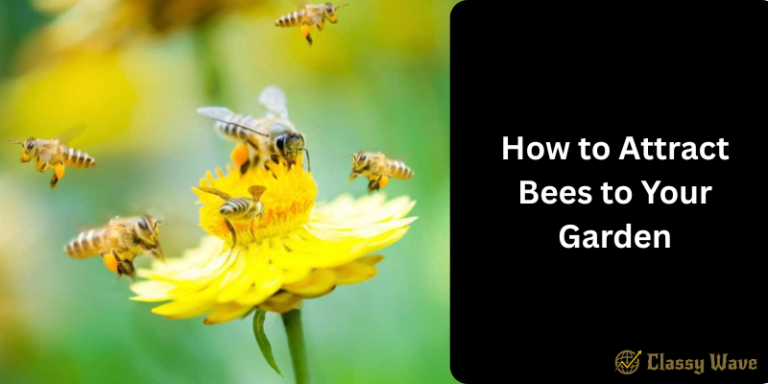How to Prevent Pests Naturally | Classy Wave
Tired of dealing with annoying pests invading your home or garden? You’re not alone! Many people turn to chemical sprays to get rid of insects, but those often contain toxic ingredients that can harm your health, pets, and the environment. The good news is—you can prevent pests naturally using simple, eco-friendly methods that are just as effective.
Whether you’re trying to protect your plants, pantry, or living space, these natural pest prevention tips will help you maintain a cleaner, safer environment without harmful chemicals.
Why Choose Natural Pest Prevention
Going natural isn’t just about avoiding harsh chemicals. It’s about creating a balanced environment where pests don’t feel welcome. Natural pest prevention helps:
- Keep your air and soil toxin-free
- Protect beneficial insects like bees and butterflies
- Maintain long-term pest control without constant spraying
- Safeguard kids and pets from harmful residues
In short, it’s better for you and better for the planet.
Keep Your Home Clean and Clutter-Free
The first line of defense against pests is cleanliness. Insects and rodents love crumbs, spills, and dark corners.
Here’s how to keep them away naturally:
- Wipe kitchen counters regularly.
- Store food in sealed glass or metal containers.
- Take out the trash daily.
- Avoid leaving pet food out overnight.
- Vacuum under furniture and appliances weekly.
A clean home leaves no reason for pests to stick around.
Seal Entry Points
Tiny cracks and gaps around doors, windows, or vents can become entryways for insects.
To block them out:
- Use caulk to seal cracks around baseboards, pipes, and window frames.
- Install door sweeps and weather stripping.
- Repair torn window screens.
Even the smallest hole can let ants, cockroaches, or spiders slip inside—so a little sealing goes a long way.
Use Natural Repellents
Mother Nature has her own pest control arsenal. Essential oils and certain herbs act as natural repellents.
Try these DIY solutions:
- Peppermint oil: Mix 10 drops with water in a spray bottle to repel spiders and ants.
- Lavender oil: Keeps moths and mosquitoes away.
- Lemon and eucalyptus: Great for flies and roaches.
- Cinnamon or clove: Sprinkle in pantry corners to deter ants and beetles.
These natural scents not only keep pests away but also leave your home smelling fresh.
Grow Pest-Repelling Plants
Plants can be your best natural pest fighters. Place them around entryways, patios, or your garden.
Here are a few top choices:
- Basil: Repels mosquitoes and flies.
- Marigolds: Keep aphids and nematodes away.
- Mint: Deters ants and mice.
- Lavender: Drives off moths and fleas.
- Rosemary: Keeps flies and cabbage moths at bay.
Plus, they add beauty and fragrance to your space!
Encourage Beneficial Insects
Not all bugs are bad. Some are nature’s pest control team. Ladybugs, lacewings, and spiders prey on harmful pests like aphids and mites.
To attract them:
- Plant nectar-rich flowers like daisies or sunflowers.
- Avoid chemical pesticides that kill both good and bad insects.
- Provide small shelters or insect hotels in your garden.
A balanced ecosystem means fewer pest problems over time.
Use Natural Traps and Barriers
Traps and barriers are excellent ways to stop pests without using poison.
- Sticky traps work for flying insects like gnats or fruit flies.
- Beer traps can lure and drown garden slugs.
- Copper tape around plant pots deters snails and slugs.
- Diatomaceous earth (DE) sprinkled around plants kills crawling insects by dehydrating them—safe for humans and pets, deadly for bugs.
These methods are safe, simple, and chemical-free.
Practice Companion Planting
Companion planting is an age-old gardening technique where certain plants protect each other. For example:
- Tomatoes and basil: Basil repels insects that attack tomatoes.
- Carrots and onions: Onions ward off carrot flies.
- Cabbage and rosemary: Rosemary deters cabbage moths.
This natural teamwork keeps pests confused and away from your crops.
Keep Moisture Under Control
Pests like cockroaches, mosquitoes, and termites love damp areas. Reduce moisture to make your home less inviting.
- Fix leaky pipes immediately.
- Empty standing water from trays and buckets.
- Ensure good ventilation in bathrooms and basements.
Dry spaces discourage pest breeding and survival.
Use Natural Cleaning Solutions
Instead of harsh chemical cleaners, use natural ones that also repel pests.
- Vinegar: A mix of vinegar and water cleans surfaces and deters ants.
- Baking soda: Works against cockroaches and deodorizes at the same time.
- Lemon juice: Keeps your kitchen smelling clean and insects away.
These simple ingredients clean effectively and keep your space pest-free.
Compost Smartly
Composting is great for your garden, but it can attract pests if not done properly.
To avoid problems:
- Keep your compost bin covered.
- Avoid adding meat, dairy, or oily foods.
- Turn your compost regularly to keep it aerated.
Proper composting creates rich soil without inviting rodents or flies.
Store Firewood and Trash Properly
Firewood piles and overflowing garbage are pest magnets. Store firewood at least 20 feet from your home and off the ground. Make sure trash bins have tight-fitting lids, and clean them often to prevent odor build-up that attracts pests.
Regular Maintenance Checks
Preventing pests naturally requires consistency. Regularly inspect your home and garden for early signs of infestation.
Look out for:
- Chewed leaves or droppings in the garden
- Ant trails in the kitchen
- Unusual smells or tiny holes in wood
Catching issues early makes them much easier to control.
Conclusion
You don’t need toxic chemicals to keep pests away—just smart, natural habits. From essential oils to beneficial bugs, there are plenty of eco-friendly solutions to keep your home and garden pest-free. Start small, stay consistent, and soon you’ll notice fewer unwanted visitors. Remember, nature has all the tools you need—you just have to use them wisely.







